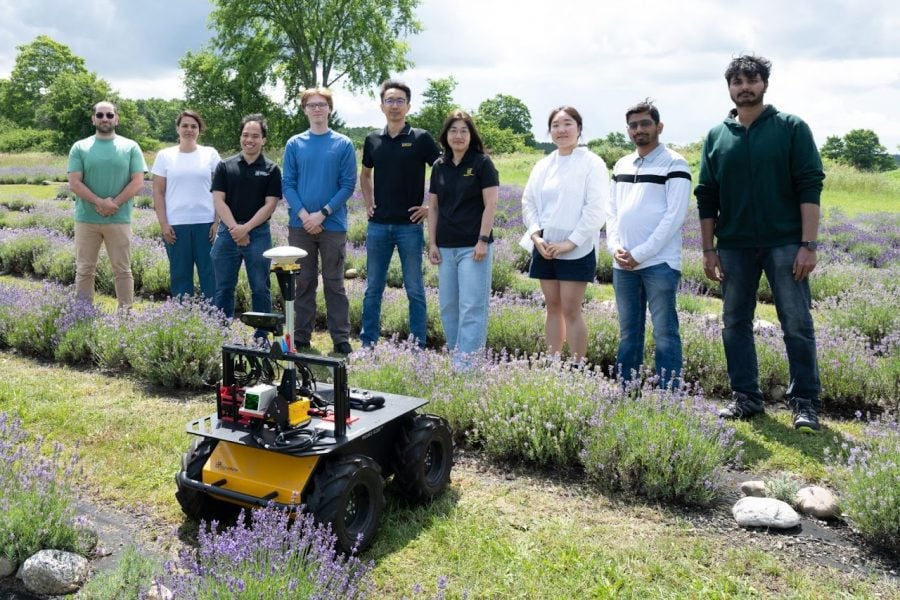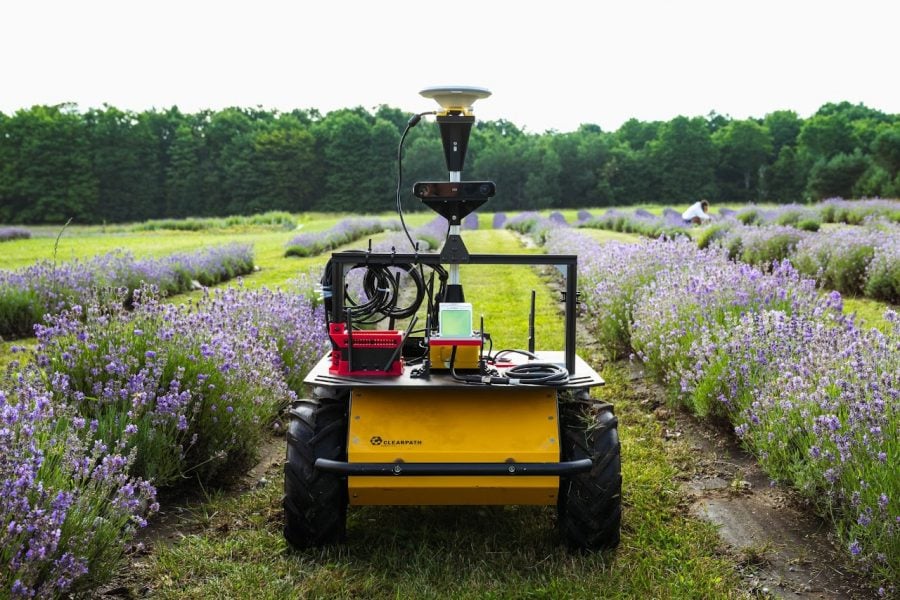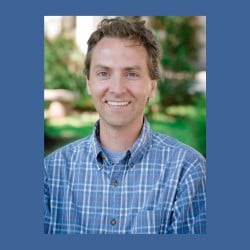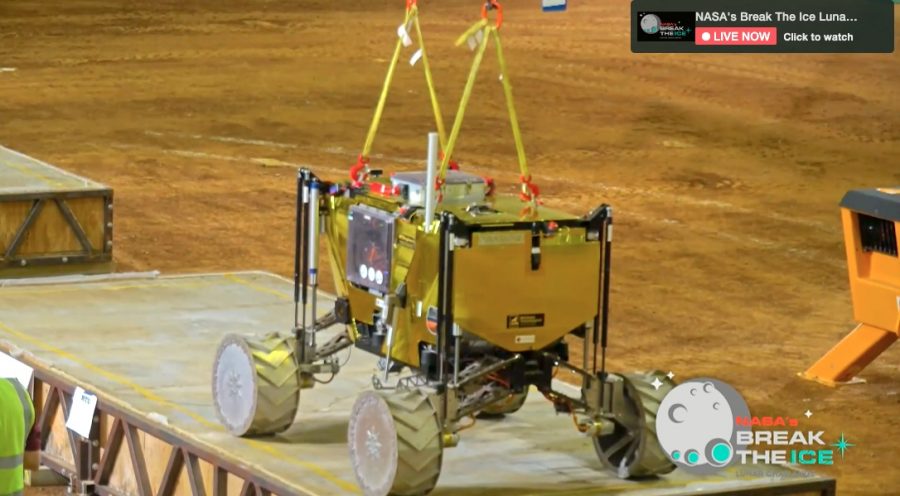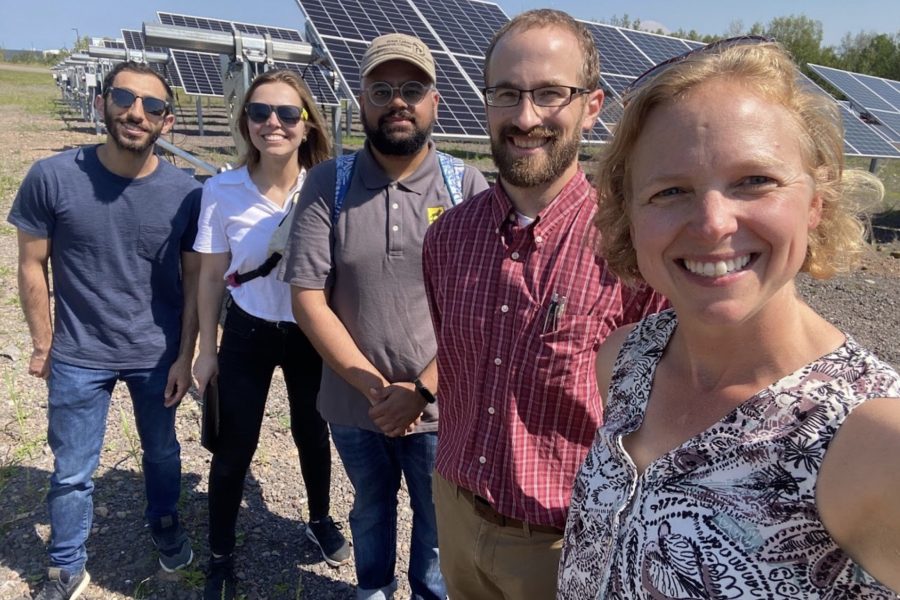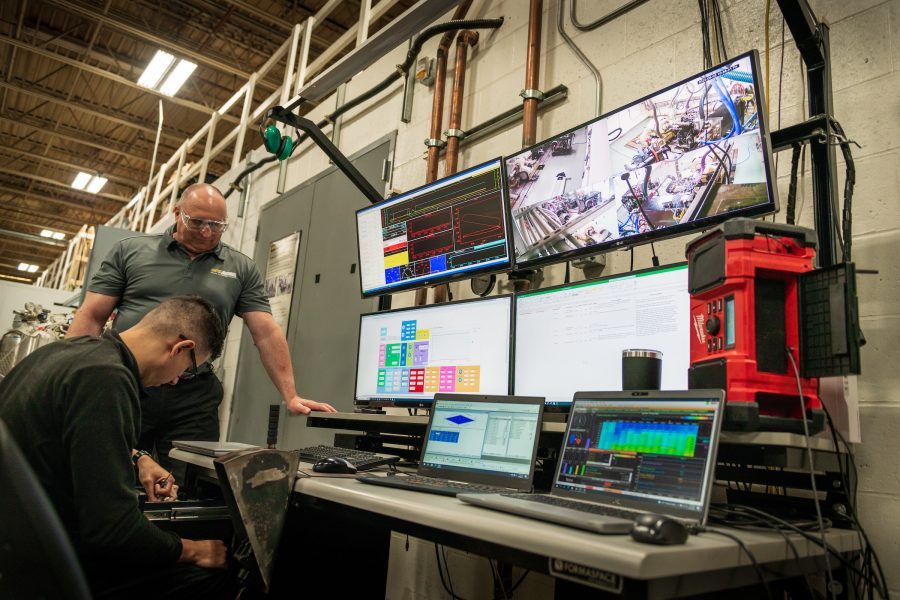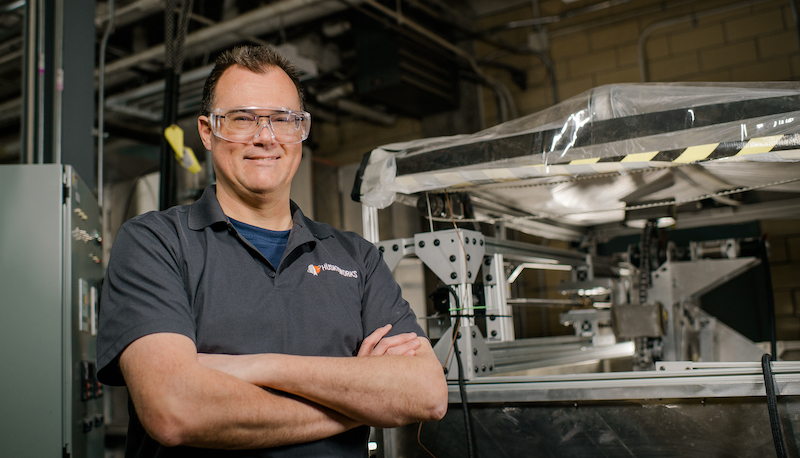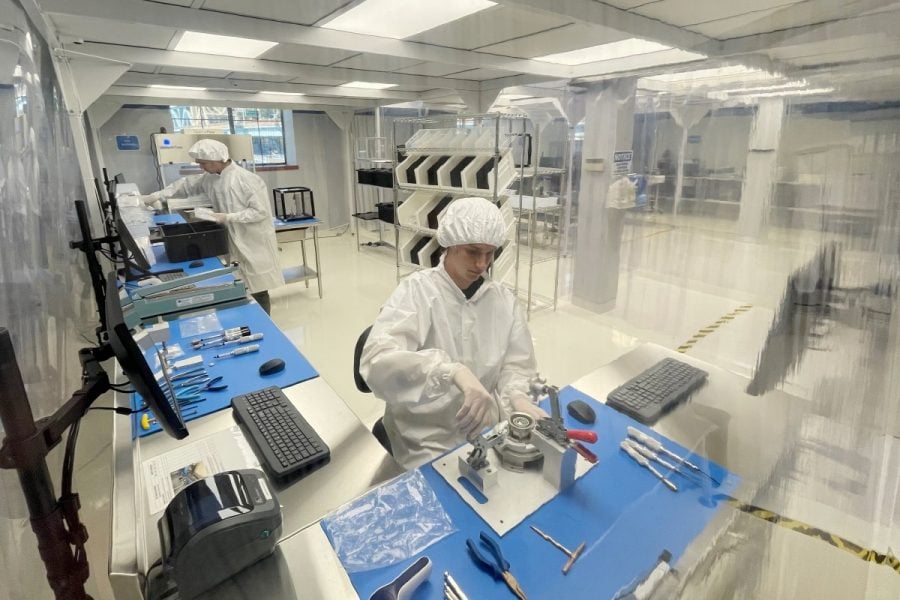Jung Yun Bae leads a team of investigators funded by a $423,300 Farm Innovation Grant from the Michigan Department of Agriculture and Rural Development (MDARD). The grants are designed to develop and support innovative solutions to real, immediate, and future farm challenges facing Michigan’s food and agricultural industry. Bae and team members are working on the project with The Lucky Clover Farm in Gaylord, MI.
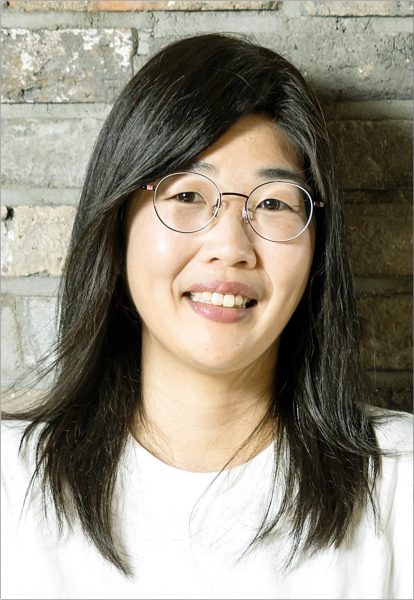
The two-year project, titled “Improving Climate Resiliency and Economic Return of Michigan’s Labor-Intensive Produce Using Low-Cost, Modular Robotic Fleets”, seeks to develop an automated floriculture harvesting system to support small farms. As stated in the team’s proposal, “The project aims to develop a robotic platform by integrating advanced technologies, including mechanical design, artificial intelligence, modern control algorithms, and autonomous navigation, to address the labor shortage and offer cost-effective solutions to farmers.”
